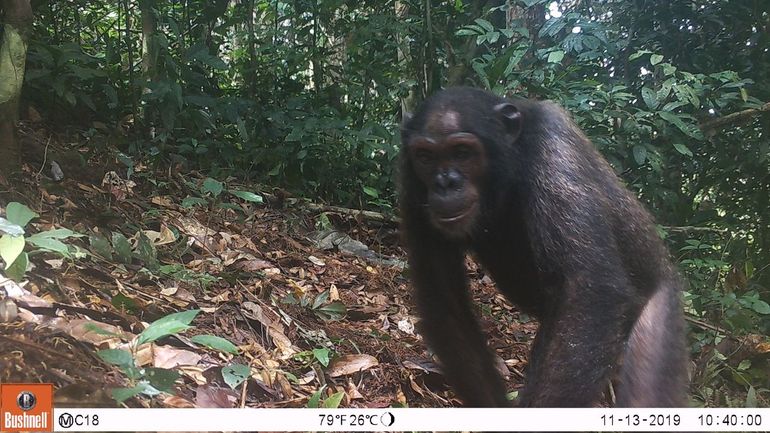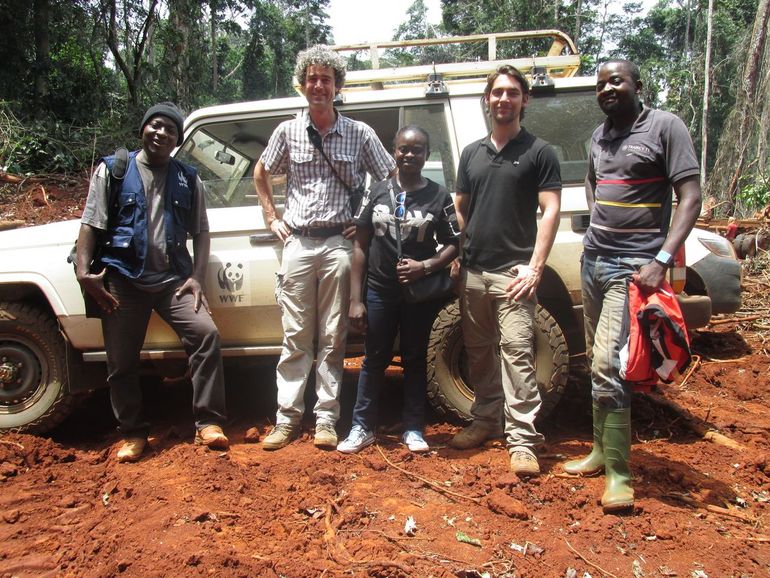In FSC-certified forests, wood is responsibly harvested for commercial purposes. Poaching is also combated with, among other things, patrols. More than 1.3 million camera trap images taken over five years in the Republic of Congo and Gabon demonstrate the effectiveness of these measures and prove the positive impact of FSC certification on biodiversity and local ecosystems.
For 30 years, the non-profit organization Forest Stewardship Council (FSC) has been committed to responsible forest management to protect animal species and secure a healthy social and economic status for local communities. For this, FSC issues certificates to forest managers who meet certain conditions. This impact on biodiversity had never been proven before this study. “These results show that certification plays an important role in conserving biodiversity in the tropics. It sounds counterintuitive, but it turns out that responsible logging can contribute to the conservation of tropical forests. However, a large part (at least 400 million hectares) of the forests we still have are used for logging. Local communities need income, and you add value to the forest by taking hardwood from it. You could also grow soy or oil palms in the same place, but there are no forests left,” says Joeri Zwerts from Utrecht University, author of the article published in the journal Nature.
“These research results are incredibly good news for tropical forests and the beautiful and endangered species that live there, such as forest elephants. This research shows that you as a consumer can make a difference and that sustainable forest management works,” said Jaap van der. Waarde, WWF-Cameroon and co-author of the article.
Poaching
Illegal hunting is a major cause of biodiversity loss in tropical logging areas. The construction of roads in these areas makes it easier for poachers to access the usually difficult habitats of big game. “Especially larger mammals are hunted and these are precisely the populations that recover more slowly, while these large animals play an important role in the forest. For example, they spread seeds and ensure the recycling of nutrients through excrement. Indirectly, they also affect the amount of carbon storage in the forest,” says Zwerts, who received his doctorate from the research in June 2023. Measures are taken against illegal hunting in FSC-certified areas. For example, roads are closed, anti-poaching patrols are organized and checkpoints are built on main roads. Meat and fish are also offered as a source of food for employees of logging companies. This makes them less dependent on illegal hunting.
More large mammals
For the study, Zwerts’ team set camera traps equipped with motion detectors in 14 forests in Congo and Gabon. Seven of these forests are FSC certified. For three months, thirty camera traps worked per forest. The resulting 1.3 million photos showed that there was a large difference in the number of mammals weighing more than ten kilograms. For example, FSC-certified forests see 3.5 times more mammals, such as antelopes and African golden cats (10-30 kilos), and 2.5 times more animal species, such as leopards and chimpanzees (thirty-hundred). kilo). Animals weighing more than a hundred kilograms, such as elephants, are caught no less than 2.7 times as often. In total, extremely endangered species are found in FSC-certified areas 2.7 times more often than in non-certified forests. The presence of large mammals has a positive effect on seed dispersal and carbon storage in forests. Previous studies have shown that tropical forests would store seven percent less carbon without elephants.
Zwerts: “We worked with hundreds of local workers on this large and ambitious project for five years. We got both certified and non-certified companies to participate in this research. After that, the logistics had to be rearranged for each company and team. We are assembled to go into the forests and install cameras 14 times in the remote areas of the Congo Basin. areas. It was hard work in challenging conditions, but the knowledge we gained is an important contribution to the conservation of tropical forest animals worldwide.”
Text: World Wildlife Fund
Photos: Interholco; Joey Zwerts



